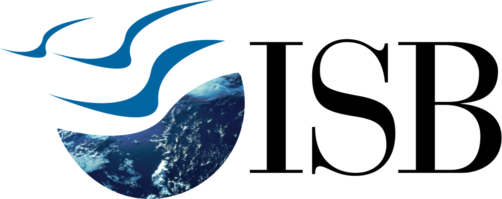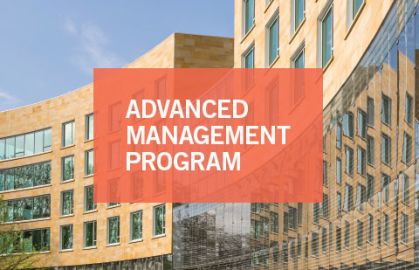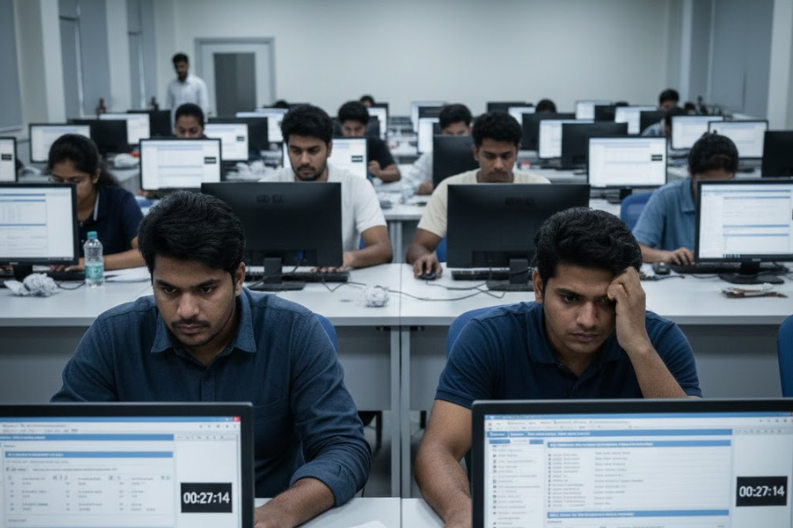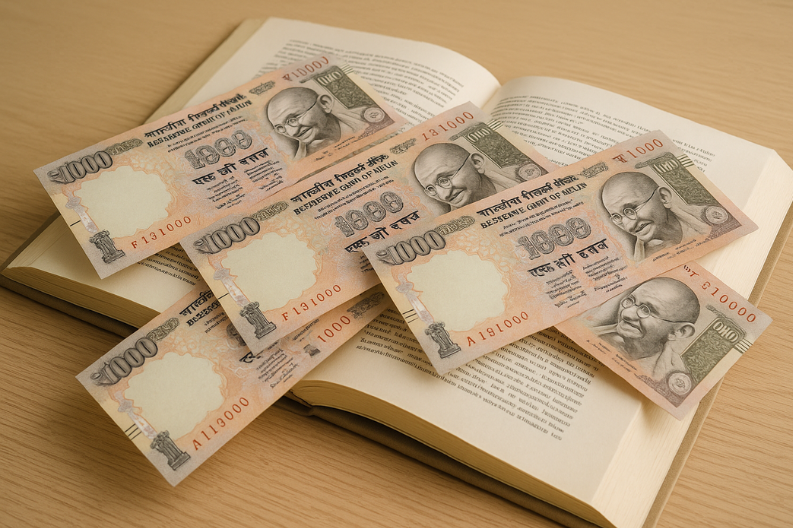ISB abbreviation for Indian School Of Business (ISB Mohali), which is a school of business management teaching offering postgraduate programs in multiple fields for Working Professionals, Executives, and Family Business. Indian School of Business’s flagship program is the Postgraduate Program in Management (PGP) with an intake of approximately 884 students.
Admission is granted on the merit scored, on the basis of national level entrance exams such as CAT or GRE/GMAT score. The Postgraduate program in management for Senior Executives is ranked 52nd among the top 100 global EMBAs by The Financial Times Global EMBA 2019 Rankings.
CAMPUS

ISB has two campuses one in Hyderabad and another in Mohali. Each campus is unique in its own way. The ISB campus at Mohali is a classic example of a contemporary architecture entwined with the beauty of nature. Designed by a New York-based designer named Perkins Eastman. The Mohali building is a tall building that symbolizes a state-of-the-art modern outlook interspersed with the Indian art on one hand, and on the other, the lush green lawns and the trees. The center of the campus called the atrium and is a beautiful attraction giving it a spacious and generous look. The campus symbolizes the identity of the institution and gives it, its own unique identity.
In the recent placement drive, the institute received the highest number of offers from multiple recruiters which is approximately 1400, giving it a significant rise in the placement ratings. There is a record in placements of 100%. There is also a significant jump in the salary packages which are being granted to students and saw a 124% rise in the salary packages. The average package offered is around 25 Lakhs or so which is a decent figure in the field. The internships are almost always converted into jobs, and students usually have lots of other options to choose from. The lowest package offered is around 20 LPA which also sees a significant rise in the future. Some of the packages also go in the seven-figure range. Students usually start start-ups also and get funding also very easily. All thanks to the brand name ISB.
COURSES OFFERED
As it is a Business Management program, it offers a variety of courses that are essential for the proper growth and molding of a professional executive. Offering over 10 courses in 3 different streams and 5 separate specializations give this college a high score on the statistics. Following is the list of programs offered by this Institute:
PgMP (Post Graduate Management Program)

- Post Graduate Program in Management
- Certificate in Business Analytics
- Post Graduate in Management for Working Professionals
- Fellowship Program in Management
- Certificate in Healthcare Management
- Post Graduate in Management for Family Business
- Certificate in Manufacturing and Operations Management
- Post Graduate in Management for Senior Executives
- Leadership in Infrastructure Management
- Certificate in Public Policy Management
AMP (Advanced Management Program)

- An Advanced Management Program in Business Analytics (AMPBA)
- Advanced Management Program for Health Care (AMPH)
- Advanced Management Program for Infrastructure (AMPI)
- An Advance Management Program for Manufacturing & Operations (AMPMO)
- Advanced Management Program in Public Policy (AMPPP)
ISB MOhali – FEE STRUCTURE
Below mentioned is the estimated cost of courses over a course of 1 year to 16 months.
| Post Graduate Program in Management | ₹ 30.07 Lakh |
| Certificate in Business Analytics | ₹ 7.50 Lakh |
| Post Graduate in Management for Working Professionals | ₹ 30.21 Lakh |
| Fellowship Program in Management | SHORTLIST |
| Certificate in Healthcare Management | ₹ 12.00 Lakh |
| Post Graduate in Management for Family Business | ₹ 37.35 Lakh |
| Certificate in Manufacturing and Operations Management | ₹ 10.00 Lakh |
| Post Graduate in Management for Senior Executives | ₹ 37.70 Lakh |
| Leadership in Infrastructure Management | ₹ 10.00 Lakh |
| Certificate in Public Policy Management | ₹ 12.60 Lakh |
*Admission fee is partly refundable as per the refund policy of the institute if due to any reason the student does not enroll in the program.
*Admission fee remitted, deferral deposit has taken place and tuition waiver awarded (if any) is deducted from the total amount and is refunded to the student.
ISB Mohali – SCHOLARSHIP WAIVERS

These are the kind of waivers awarded to the student based on their academic performance. If a student has performed well in their tests and hopes to get admission in this institute, ISB encourages them by giving them a reduction in the admission fees. Following are the type of waivers given to the students:
- ISB Merit Waivers: The scholarships are given to students based on their scores. If they are on the merit list they are given priority in the selection process. Approximately, 40 scholarships, amounted up to INR 5 Lakhs is given to the eligible students.
- Need-based Waivers: ISB and Corporate donors’ award up to 40 scholarships of INR 5 Lakhs to students whose family income is less than INR 12 Lakhs. To qualify for this type of scholarship, a student needs to submit an essay describing the circumstance in detail and proof of income of the whole family, to be eligible for the need-based waiver.
- Citi Scholarships: Citi Bank gives 4 merit students a scholarship of around INR 7.5 Lacs each – 2 for Citi employees and 2 for students with an interest in financial services. They are given with an agenda of giving a boost to Citi bases students.
- Phoenix Nurture India Scholarship: This scholarship is given to those students who are the sole earning members of their families. The amount to be given is around INR 5 Lacs each. To be eligible for this type of scholarship, an essay needs to be submitted. After proper assessment and careful evaluation, the scholarship will be given to the candidate.
- Bajaj Auto Scholar: Bajaj Autos also provides three merit-based scholarships to eligible and interested students. There are future eligibility criteria for this scholarship but the basic is that the student needs to be associated with Bajaj Auto in some way.
ISB MOhali – ADMISSION PROCESS

- To be selected in the ISB, the candidate’s participation in GRE/GMAT is required. The minimum eligibility criteria need to be filled out.
- The Student needs to secure a minimum number of marks to secure admission in ISB.
- Work Experience also adds a huge plus for getting admission into this Institue.
- They will be required to fill an online application form available on the website. The availability of the form is notified on the website and many other educational websites.
- However, the selection is based on the evaluation of various academic, professional and personal attributes along with personal interviews conducted at the time of admissions.
- Candidates are always required to have English as the level of instruction at the undergraduate level. If this condition is not meat, the students are required to appear for TOEFL/IELTS or PTE type of examination.
Above all, ISB Mohali is an excellent institute for those seeking a bright future in the field of business management. The interested and eligible ones should definitely check this institute out and make it as their priority institute. Also, know about IISER Mohali, here.
Daily News
CAT Exam Analysis Slot 3: Students Face Tough QA Section

AI Generated
The CAT exam analysis slot 3 reveals that the final session of CAT 2025 proved moderately difficult for most candidates. IIM Kozhikode conducted the Common Admission Test on Sunday, with the third slot running from 4:30 pm to 6:30 pm. Approximately 2.58 lakh students appeared for the exam across all three slots nationwide. Moreover, the overall attendance reached around 86 percent, showing strong participation.
Candidates found the Quantitative Ability (QA) section particularly challenging in the third slot. Experts from Career Launcher noted that QA emerged as the toughest section of the entire day. The section contained 22 questions that required multi-step reasoning under time pressure. Consequently, students estimated that scoring just 5-6 correct answers could secure the 90 percentile mark.
In contrast, the Verbal Ability and Reading Comprehension (VARC) section remained relatively manageable. Students worked through 24 questions in 40 minutes, following the established pattern from previous years. Furthermore, the reading comprehension passages, though occasionally dense, featured straightforward questions. Experts rated this section as easy to moderate, similar to the earlier slots. Additionally, candidates estimated that 8-9 net correct answers would likely place them around the 90 percentile range.
The Data Interpretation and Logical Reasoning (DILR) section presented moderate difficulty throughout the day. This section comprised 22 questions that demanded careful prioritization. Many students highlighted that certain caselets required extended time to solve completely. Therefore, experts suggested that 5-6 solid correct attempts would be sufficient for the 90 percentile. The logical depth and data complexity exceeded expectations for several candidates.
The exam followed the standard structure across all slots. Each session included 68 questions distributed across three sections, with 120 minutes to complete the test. The marking scheme awarded three marks for each correct answer while deducting one mark for incorrect responses. However, unattempted questions carried no penalty, allowing strategic question selection.
Across India, nearly 6,500 candidates appeared for the exam in the tricity region alone. In Mohali, students took the test at two centers located in Sectors 82 and 83. Meanwhile, IIM Sirmaur and IIM Amritsar continue attracting northern region aspirants. Panjab University’s University Business School also remains a preferred choice, with cutoffs expected around the 85 percentile.
Student reactions varied across sections. Himanshi Sharma from PEC Chandigarh shared that the verbal section went smoothly for her. Nevertheless, she found the Math and DI sections tougher than expected. Similarly, Nishant Rathour from Panjab University described the DI section as particularly tricky, though he felt satisfied with his overall performance.
Compared to CAT 2024, this year’s exam showed a slight increase in difficulty. Specifically, DILR emerged as clearly more difficult than last year, while VARC remained marginally easier overall. QA maintained similar difficulty levels but leaned toward the tougher side, especially in the final slot.
CAT 2024 Slot 3 Analysis: कैट एग्जाम स्लॉट 3 एनालिसिस; वीएआरसी कठिन और डीआईएलआर सेक्शन आसान रहा#CAT #CATExam #CAT2024 #CATExam2024
Read more at: https://t.co/IXjsOPQmgk pic.twitter.com/Tc3JnCmero
— Careers360 (@careers360) November 24, 2024
Early estimates suggest that candidates scoring 25-27 net correct answers across all sections in the third slot may reach the 99 percentile. This reflects the overall challenging nature of the session. The results are expected by the end of December, after which shortlisted candidates will proceed to the essay writing and personal interview stages.
The CAT exam analysis slot 3 indicates that smart question selection proved essential for success. Students who managed their time effectively and prioritized accessible questions likely performed better across all sections.
Education
Ludhiana: Guest Faculty Finally Receive 10-Month Salary Arrears
In Ludhiana, a big win for guest faculty members happened recently.

ChatGPT Generated (Not a Real Image)
A major relief arrived in Ludhiana after the guest faculty finally receive 10-month salary arrears, bringing joy to hundreds of teachers who had waited almost a year for their pending payments. The Guest Faculty Assistant Professors United Front celebrated this moment and appreciated the government for responding with care and speed.
Leaders of the United Front: Ravinder Singh Mansa, Gursev Singh Patiala, Paramjit Singh, and Muhammad Tanveer, thanked Higher Education Minister Harjot Singh Bains for his quick action. They said his involvement played a key role in clearing the long-pending salaries, which had caused stress for many teachers.
Guest faculty members have supported Punjab’s education system for more than twenty years. They teach in government colleges across the state and continue to guide thousands of students every year. Because of their long contribution, many believe they deserve stronger recognition and fair job security.
In 2022, the Aam Aadmi Party government increased the honorarium for guest professors. This move showed that the state understands its needs and values its service. However, when the government hired permanent professors later, new administrative steps caused delays. As a result, salaries in 25 colleges got stuck, leaving many guest faculty members under financial pressure.
Fortunately, coordinated efforts between the principal secretary and the director of higher education helped end this problem. They removed procedural hurdles and ensured payments finally reached teachers. The United Front also praised the director of higher education for honest and steady leadership during this difficult period.
Teachers across Punjab shared how delays affected their daily lives. Many said they continued teaching with dedication despite financial hardship. Ravinder Singh urged the government to regularize guest faculty services so teachers who served for decades can gain stable positions. He explained that permanent jobs would reflect the true value of their contribution to higher education.
Guest faculty members have shaped the academic journey of countless students. Because of their constant support, many colleges have been able to run smoothly even during staff shortages. Giving them job security would not only help teachers but also improve student learning.
Better treatment of educators leads to better education for everyone. When teachers feel supported, they can focus fully on teaching, guiding, and inspiring young minds. Moreover, regular pay and stable employment help create stronger academic environments.
In conclusion, clearing the pending salary dues marks a positive step for Punjab’s education sector. It shows that the government is willing to listen and respond to teachers’ concerns. Many hope this progress continues, offering more recognition and long-term support, especially after the guest faculty finally receive 10-month salary arrears.
Daily News
What Is an AI Bubble? A Deep, Clear Explanation

Artificial Intelligence (AI) has transformed from a futuristic dream into a booming global industry. Trillion-dollar valuations, skyrocketing chip demand, and rapidly expanding data centers have convinced many that AI will change the world. And in many ways, it will. But beneath the excitement, the rapid pace of investment and financial engineering has raised an important question: Are we living through an AI Bubble?
Just like the dot-com era of 1999 or the US housing bubble of 2008, an “AI Bubble” refers to a dramatic rise in valuations, investments, and expectations-far beyond what real-world fundamentals justify. When these expectations eventually confront reality, the bubble risks bursting.
This article explains what an AI bubble is, how it forms, why it matters, and how investors and industries should view it.
1. Understanding the Core Idea of a Bubble
A “bubble” is an economic condition where asset prices rise sharply because of hype, momentum, and optimism-rather than actual performance and revenue.
In the context of AI:
- Companies are investing heavily in computing power and data centers.
- Investors are pouring money into AI startups at record valuations.
- Tech giants are spending tens of billions on chips, servers, and software.
- Everyone assumes that AI will soon generate massive profits.
A bubble forms when expectations grow much faster than actual, sustainable earnings.
In other words:
A bubble is created when we assume infinite growth based on finite evidence.
2. Why AI Is Attracting Trillions of Dollars
Before calling it a bubble, we must understand why this technology attracts so much money.
AI promises:
- Faster automation
- Better productivity
- New business models
- Breakthroughs in medicine, education, finance, robotics, and more
- Massive time and cost savings for enterprises
Global companies do not want to miss out on a technological shift that could determine the next generation of winners in the economy.
There’s nothing wrong with this. Innovation requires investment.
The issue begins when these investments turn speculative, detached from realistic outcomes.
3. What Creates an AI Bubble?
a. Exponential Investment vs. Slow Monetization
AI models (LLMs, diffusion models, robotics brains) need:
- Immense GPU power
- Large data centers
- Cheap electricity
- High-bandwidth networking
- Engineering teams
- Safety teams
- Product teams
Yet, despite billions spent, AI revenue is still small. Except for a few giants like Google and Microsoft, most companies haven’t found a profitable business model.
If expenses rise faster than revenue, valuations can become artificially inflated.
b. Circular Financing
In a healthy economy, money flows like this:
Investor → Company → Revenue → Profit
But in bubbles, the flow becomes circular:
Investor → Company A → Company B → Company A
Example pattern:
Company A invests in Company B → Company B uses the funds to buy Company A’s products → Company A’s revenue goes up → valuation goes up → investors put more money.
It creates an illusion of demand-when in reality, the cash keeps cycling inside the same loop.
c. Hidden Debt and Financial Engineering
Some companies don’t want to show massive AI-related debt on their balance sheets. So they create:
- SPVs (Special Purpose Vehicles)
- Leasing structures
- Off-balance-sheet borrowing
- Vendor financing arrangements
This makes their main company appear financially healthy, even when huge risks are quietly accumulating elsewhere.
This is similar to the 2008 housing bubble, where mortgage risks were hidden inside complex derivatives.
d. GPU and Data Center Mania
An AI model isn’t just software-it lives inside expensive data centers packed with GPUs. The cost of building these facilities has exploded.
But here is the issue:
- GPUs depreciate quickly
- New generations release faster than before
- The hardware becomes obsolete
- Data center rental rates fluctuate
- Electricity and cooling costs rise
- AI demand is not guaranteed
If the business model does not justify massive capex, the investment becomes risky.
4. Fake Demand and Overreaction to Geopolitics
AI chips also became expensive because geopolitics created artificial scarcity. Restrictions on selling high-end chips to countries like China created a “shortage premium.” Companies started hoarding chips, not because they needed them immediately, but out of fear of missing out.
This artificial demand can collapse quickly once supply stabilizes.
5. AI Hype Across Non-Tech Industries
In the dot-com era, every company rushed to add “.com” to their name.
Today, something similar is happening:
- AI toothbrush
- AI washing machine
- AI refrigerator
- AI hair dryer
- AI fan
- AI cooker
- AI helmet
- AI vacuum cleaner
Most of these “AI-enabled” products do not provide any meaningful intelligence. But companies do this to attract investor money and media attention.
When hype becomes a strategy, a bubble is already forming.
6. Historical Parallels: How Bubbles Usually Work
Dot-Com Bubble (2000):
- Companies grew without revenue
- IPOs doubled on listing day
- “Internet will change everything”
- But most firms had no profits
- Bubble burst when investors demanded real cashflows
Housing Bubble (2008):
- Excessive borrowing
- Hidden risks
- Overconfidence that prices will always rise
- Collapse triggered a global recession
AI Bubble Today:
- Massive capex
- Hidden debt
- Unrealistic expectations
- Companies using AI tag for hype
- Concern that revenue may not catch up soon
7. Is AI Itself a Bubble? Absolutely Not.
Artificial intelligence is real. It is transformative, and it’s here to stay.
But the financial ecosystem around AI may be inflated.
The internet survived the 2000 crash.
Housing still exists after 2008.
But the companies built on unrealistic promises disappeared.
Similarly, AI will remain essential for the next 50+ years-but many AI businesses may not survive the financial correction.
8. When Can an AI Bubble Burst?
Predicting exact timing is impossible.
But bubbles usually burst when:
- interest rates rise
- profitability lags
- capital becomes expensive
- debt accumulates
- growth expectations fail
- competitive pressure increases
- investors look for safer opportunities
If companies cannot turn today’s multi-billion-dollar investments into sustainable revenues, correction becomes inevitable.
9. What Happens If the AI Bubble Bursts?
Short-term impact:
- Stock market correction
- Valuations of AI startups collapse
- GPU and data center prices drop
- Over-leveraged firms face bankruptcy
- Investors lose money on speculative bets
- Hiring slows across tech sectors
Long-term positive impact:
- Weak, overhyped companies disappear
- Strong products survive
- Innovation becomes more disciplined
- Infrastructure becomes cheaper
- AI becomes more accessible
- Industry stabilizes
- Real business models mature
Bubbles clean the ecosystem and leave behind only what truly works.
10. Will AI Still Grow After a Bubble? Yes-Even Faster.
A bubble does not destroy technology. It only destroys bad investments.
After the dot-com crash, the internet entered its golden period.
>After the crypto crashes, blockchain matured and became more regulated.
>After solar energy crashes, renewable companies finally became profitable.
AI will follow the same pattern:
Temporary hype → Bubble → Correction → Sustainable long-term growth
Final Thoughts
An AI Bubble forms when optimism outpaces logic, financial engineering hides risk, and everyone assumes growth will continue forever. But AI itself is not the bubble. The bubble is the money, debt, valuation, and expectation built around the technology.
AI will change the world. But the journey may include a financial reset-one that separates hype from real innovation.
True revolutions don’t collapse after a bubble.
They only get stronger.
-

 City Guide3 years ago
City Guide3 years ago3B2 Mohali Market Shops: Discover 44 Hidden Gems
-

 Entertainment3 years ago
Entertainment3 years agoTop 15 Punjabi Models – Male and Female List
-

 Entertainment3 years ago
Entertainment3 years agoTop 11 Punjabi Comedians of All Time
-

 Jobs4 years ago
Jobs4 years agoTop 20 IT Companies in Mohali
-

 Food4 years ago
Food4 years ago11 Best Restaurants in Mohali You Must Visit
-

 Food3 years ago
Food3 years agoTop 15 Cafes in Mohali you must visit
-

 Property2 years ago
Property2 years agoWho Lives In Homeland Mohali: Punjabi Celebrities, Business People…
-

 Education2 years ago
Education2 years ago10 Famous Punjabi Writers With A Great Impact On The Literary World
